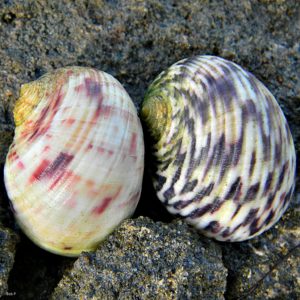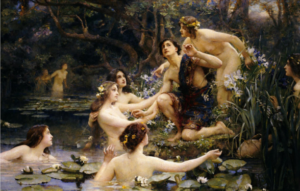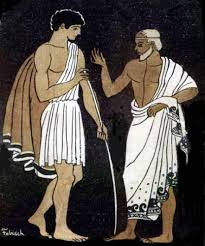
I came by to approve a comment on one of my old posts, and I was slightly horrified to notice I hadn’t made a peep around here since last year. This is my first post of 2020. Happy New Year! Happy Valentine’s Day! Hoping you had a great Oscars Party!
Ugh. I’ve been a terrible correspondent. Where do I begin to explain? I can’t blame everything on the world going bust with Covid-19 and the continuous trauma of our times here in the United States, or the stress of quarantine-living and working from home. Those things had an impact on my writing productivity for sure, but the truth is I mentally stepped away from being author Andrew J. Peters months before any of that. The reasons felt too personal and in some parts too much of a downer to share publicly.
But [deep breath] I’m going to take a dive into what’s been going on with me.
I’ve always been the sort of person who prefers to get the bad or I should say harder news out of the way first, so let’s start with that. 2019 was a tough year for me as a writer. Some great things happened, like seeing my short story anthology make its way into print, but I’d been struggling with the angsty realities of being a small press author for some time. I’m searching for the right metaphor. The air ran out of the balloon? That doesn’t quite capture things because I’d been thinking long and hard about what to do with my writing career. It’s been more like an intentional pause.
I hesitated to share how I was feeling, and not just with my readers. I only told my husband and a few close friends. I worried about sounding whiny or sounding blame-y or letting down the people who helped me get to where I am. I know some writers who have publicly talked about the things I was experiencing, but still I dreaded coming out about my own struggle. The optics seemed like a disaster. Successful authors don’t complain about how hard it is to make it in the industry and admit defeat. Who wants to buy books by someone like that? It just felt counterintuitive.
I’m still not convinced I’m doing the right thing by talking about it now, but I’m at a place where that’s okay. This will be cathartic and maybe it will be of some use to other writers who might be silently feeling the same way.
When I started writing with an eye for getting published, some ten plus years back, I was really humble about it. Writing was my second career. I was a newbie with a ton to learn. I soaked up all I could about writing craft from books and blogs. I attended conferences and retreats, and I avidly participated in writers’ forums and made a lot of writing buddies. I joined critique groups and for a while co-led a group for queer writers. I was hardly a jaded victim of early success or peaking too soon.
Starting out with my short fiction, I blithely reached for the stars but gratefully ended up publishing in non-paying markets for the most part. Through a writers critique group, I learned that my first novel manuscript, which I labored over three years to write, was total crap, and I spent a year figuring out how to fix it and then another year executing that fix. Then came two years of querying agents and just about every small press that took unagented submissions. Easily, I accumulated over one hundred rejections. I had some really deep lows, but I always bounced back. I’d never been more determined to accomplish something, and I’d never worked harder on anything in my life.
As the saying goes, it just takes one yes, and wow, that yes happened with an LGBT publisher in 2012, and it included a respectable advance.
Still, I like to think I kept my head out of the clouds. Words of wisdom from writers who were further along in their careers helped. Write your next book. What’s done is done. Don’t look back. I had a lot to write. That same publisher picked up my next two books, and I placed a series with a second publisher and a different planned series with a third.
Some of my titles did all right with sales. Most barely broke triple digits, including a title that was a finalist in the Foreword INDIES. I had an agent for a while, but she couldn’t get an editor interested in my title. The disappointments always stung, but I found a way to shake them off, usually in no more than twenty-four hours. I kept focused on both improving my writing and getting better at networking and marketing. And I kept writing books.
In 2019, I had a publishing contract for a short story anthology I’d never dreamed would come to life and a novel manuscript that was getting bites from agents in just my first few queries. It felt like things were taking off.
But then, they didn’t.
Despite a shit-ton of my own promotion, the anthology debuted to crickets chirping. Meanwhile, after all those initial enthusiastic responses to my new manuscript, rejections from agents, then editors started coming in. The wheels came off. There’s another metaphor. I started asking myself: what’s the point? I don’t expect a lot from my investment of time and creative energy, but I can’t keep living completely in the red.
I don’t mean financially. I’m privileged to have a good-paying day job. With that recent manuscript, I’m pretty sure I could work my way over to a smaller publisher and find a home for it. Yet I was thoroughly demoralized by the prospect of doing that.
For what? To take another manuscript I busted my butt to write through the arduous editing and production stages just to have another title out that a handful of people will read?
This is no dis to small presses. Those folks work hard as hell and pour their lives into keeping their businesses afloat because they love books and believe there are stories that need to be shared with the world. This is me talking about me. I took an inventory of myself and decided, I just wasn’t getting enough out of publishing my work. I needed a break. I didn’t have the energy or enthusiasm to keep trying to get published and promoting myself as an author.
I fully admit I’m not the greatest at the business side of writing. I loathe self-promotion, and I’m just not a natural at it. I pushed myself to do it for years, accepting that no writer can say their job is done just because they’ve put together the best story they can write. Even the big house publishers expect their authors to do a lot the selling on their own.
But I came to a reckoning. Do I want to keep grinding to promote a book that’s going to give a publisher a bigger share of the profits? I don’t expect to get rich, and believe me, I haven’t made any of my publishers rich. It’s the lack of an emotional return on the investment that brought me to my knees. And I’m not saying I deserve more because I’m such an awesome writer. But I deserve something, and I just haven’t been getting much.
A sidebar to that reckoning is the type of stories I write, gay fiction, are always going to have a limited readership. That’s not a statement about homophobia or discrimination in publishing or among readers. It’s just what I believe to be a fact. And I’ve got no interest in writing anything different or trying to write to market (whatever the heck that means). It’s a lonely place to be.
So, I’m on a pause from being author Andrew J. Peters. Since the start of the year, I’ve done zero with my mailing list, zero social media promotion, zero with my Patreon page, and zero work on drumming up publicity. It actually has been kind of awesome.
But I know myself. I’ll come back to it sometime. Maybe writing this post is a step in that direction. I don’t know for sure.
Meanwhile, I have been writing and doing something pretty different. It started as an experiment about two years ago: self-publishing my racier work under a pen name. I never thought I’d say this, but I’m really enjoying self-publishing. Yeah, there was that twenty-four hour period when I was in tears because I blew up my website and had to completely recreate it. And I’ve had some meltdowns doing file conversions. But overall, it’s brought the joy back to my writing. I’m not raking in cash from it, but having control over production and marketing makes a big difference for me. The self-promotional work is less dreadful because I’m directly and proportionally reaping the profits. What I put in is what I get out, and the process of building a readership feels more organic. It’s the fresh start I needed.
Thus, the story behind my disappearing act has a happy ending. If you’re curious about what I’m working on, drop me a line. Only if you’re 18 and over though. It’s explicit stuff. 🙂
I’ll end by saying thank you for believing in me and for picking up one of my books and dropping me a line from time to time. Maybe I’ll be back in action writing gay fantasy and young adult books in the future. You’ll certainly hear about it if I do, and I’m happy to keep in touch in the meantime.
Be healthy and well, #BlackLivesMatter, and vote!








